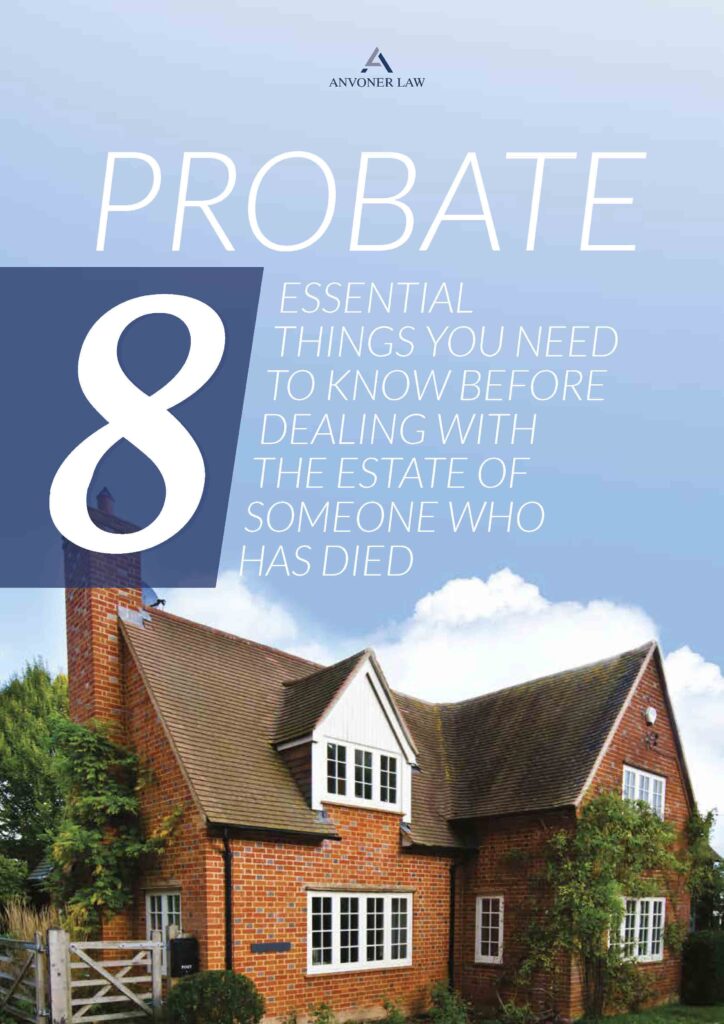When someone dies, unless they don’t own their home and they leave only extremely modest
savings, there are legal processes that must be carried out to deal with their assets.
This procedure varies according to the value of all they’ve left, and whether or not they had a
valid Will.
Somebody has to deal with all their assets, including their bank accounts, savings and
property (and this is known as their Estate).
This involves establishing the exact date of death valuations, completing a death tax return
and, if necessary, paying death duties (called inheritance tax), liabilities & debts, and
distributing the remainder to those who are entitled to it.
Unless and until everything has been completed correctly, no assets held in the sole name of
the deceased can be released to those entitled.
If any assets are incorrectly distributed, the person dealing with the administration of the
Estate could also find themselves personally liable to any people who receive less than that to
which they are entitled.
In order to release the assets of the deceased, to collect in money and to transfer or dispose of
property, a grant of representation will need to be issued by making an application to the
Court.
If there is a valid Will and the deceased has appointed an Executor to deal with these matters,
the Court will issue a Grant of Probate – and you’ll often hear the whole process referred to as
Probate.
If there is a valid Will, but no named Executors who are able or willing to act, the grant is
called Letters of Administration with the Will annexed. In that situation you should contact
us or other specialist solicitors so that we can explain who should be dealing with the
administration.
If there is no valid Will, then the grant is called Letters of Administration and, again, you
should contact us for advice.
The procedure which has to be followed to obtain a grant from the Court is often a lot more
complex than people realise, as strict legal rules have to be followed.
The Executors or those responsible for dealing with the administration (the Personal
Representatives or PRs) would definitely be best advised to seek our guidance, or that of
other solicitors specialising in this area of law, before doing anything.
This is because the Personal Representatives are legally responsible for all their actions in
relation to the estate of the deceased, and also their omissions.
They could easily find themselves facing a large personal fine from H.M. Revenue &
Customs if the Revenue is not satisfied, even though the PR may have been unaware or
ignorant of any problem or mistake.
We specialise in this area of law, and can deal with everything for you.
After an initial meeting the person handling your matter will deal with everything personally,
and you can speak to them at any time, rather than to an anonymous probate team.
Unlike some banks and other high street names, we do not sub-contract our clients’ matters to
anonymous third parties.
In addition, we’re able to deal with all matters relating to the Estate. Some aspects relating to
an administration can legally only be dealt with by solicitors.
If you have recently lost someone, and are unsure what to do, simply telephone us.
We are happy to spend time on the telephone giving you general guidance, explaining what
must be done first and advising whether a meeting might be beneficial for you. There is no
charge for this telephone advice, and a meeting may be free of charge too.
So, contact us now. Phone us on (020) 8449 0003 or, if it isn’t convenient for you to speak
now, give us your details on the contact form, and we’ll get in touch when it’s more
convenient for you.

